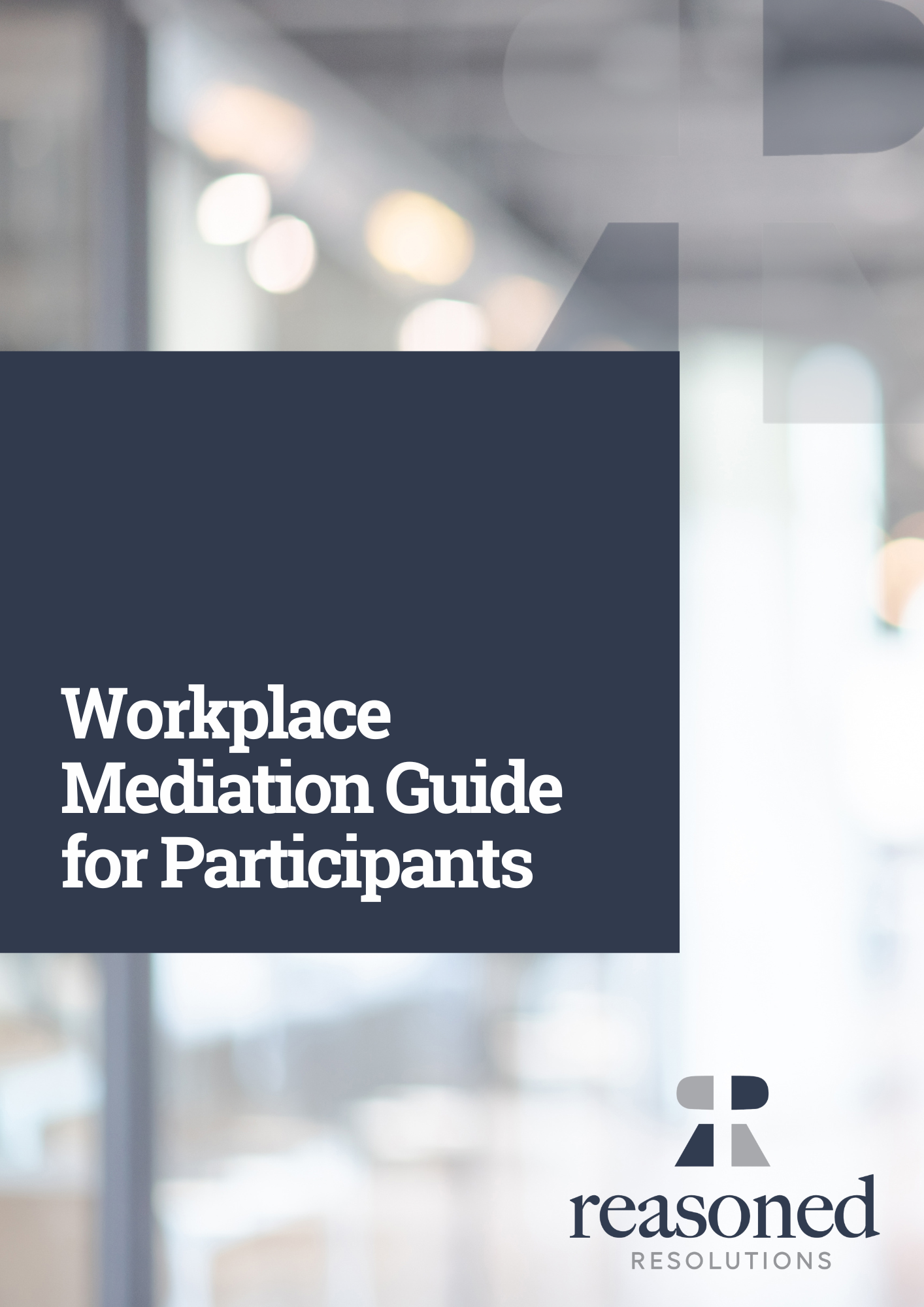
Mediation in the Workplace
The Value of Mediation in a Workplace Dispute
A conflict in the Workplace is often not just disruptive to the individuals directly concerned. Beyond affecting the performance of those individuals, informal / friendship networks which develop in the work environment can often cause such conflicts to spread more widely, with people joining either Team person A or Team person B. Within a short period, instead the conflict may affect the morale of a whole team, or even multiple teams.
If not resolved, this may cause formerly productive individuals to become stressed, drop their performance and satisfaction with the organisation and take additional sick leave. It could result in valued, highly trained individuals leaving. This can adversely affect organisation’s goals and result in additional staffing and training costs, as well as costly legal claims (e.g. workers compensation, discrimination, bullying, unfair or constructive dismissal etc).
When seeking to resolve a workplace conflict, as well as exploring what caused it, we assist the individuals to focus on what will be a workable outcome, both for them and the organisation.
The advantage of having a mediator assist the people involved is that we come into the organisation with no “barrow to push”. We are independent, neither a “pro-worker” union representative, nor a “pro-management” HR employee. We have no investment in the outcome. As such it is easier for us to work with each of the individuals involved to assist them to understand that the Mediation is both a safe space (where they can confidentially tell their story to the other person/s) and an opportunity for them to have a real say in the resolution of the conflict.
The Process
Once engaged, and after obtaining background information, we will hold intake interviews (up to one hour each), speaking separately with each of the people involved.
Usually we will hold these confidential interviews on the morning of the mediation, somewhere away from the workplace to:
obtain a better understanding of their perspective on the conflict;
explain the process; and
provide them with “homework” (preparation and ways to think through what has happened and what they want from the mediation).”
During the mediation, the mediator will assist the parties to talk constructively with one another by:
setting ground rules for respectful communication;
helping them identify to each other their main concerns;
assisting them to explain how the conflict affects each of them; and
identifying to each other what they want from the mediation.
We encourage them to look to the future to identify what each will do if problems arise again and to document any agreement reached (the only record to management will be a copy of the agreement).
Why Mediate?
-

Speedy
Mediation can be arranged quickly (within 1 or 2 weeks) which reduces the chances of the conflict escalating and causing more damage.
-

Confidential
Mediation is a confidential process. The only persons involved (or know) are those who need to be.
-

Mutual and Workable
When individuals do reach agreement, it is something which they (assisted by the mediator) each agree is workable and something which they can abide by.
-

Cost effective
Matters resolved by mediation at an early stage avoid the time and stress on an organisation and its staff preparing for Court cases, as well as tens or hundreds of hours of lawyers’ fees (not all of which can be recovered, even if you win).
When Not to Mediate
Mediation is not a disciplinary measure and is voluntary (i.e. any party, including the mediator, may withdraw at any time) so, it may not be suitable when there is a significant power imbalance between the parties, one of the parties is too emotional / unwilling to participate, or allegations have been made of very serious or criminal conduct.
Outcomes
Where agreement can be reached between the participants, it may result in both, or one of them agreeing to:
Basic standards for communication between them;
Modification of behaviours in the workplace;
Approach management to discuss job responsibilities or parameters; or
Seek a change of role (either within or outside the company).
Fees
We charge a flat fee of $3,000 (plus GST) for a mediation involving 2 individuals which is capable of being concluded in one day. This includes reviewing relevant documentation, preparation, local travel, intake interviews with the individuals, conducting the mediation and reporting to management on the outcome. If additional sessions are required, they are charged at the rate of $350 per hour (plus GST) on a 15 minute pro rata basis.
For more complex disputes (and those involving more than two persons) contact us to discuss fees.

